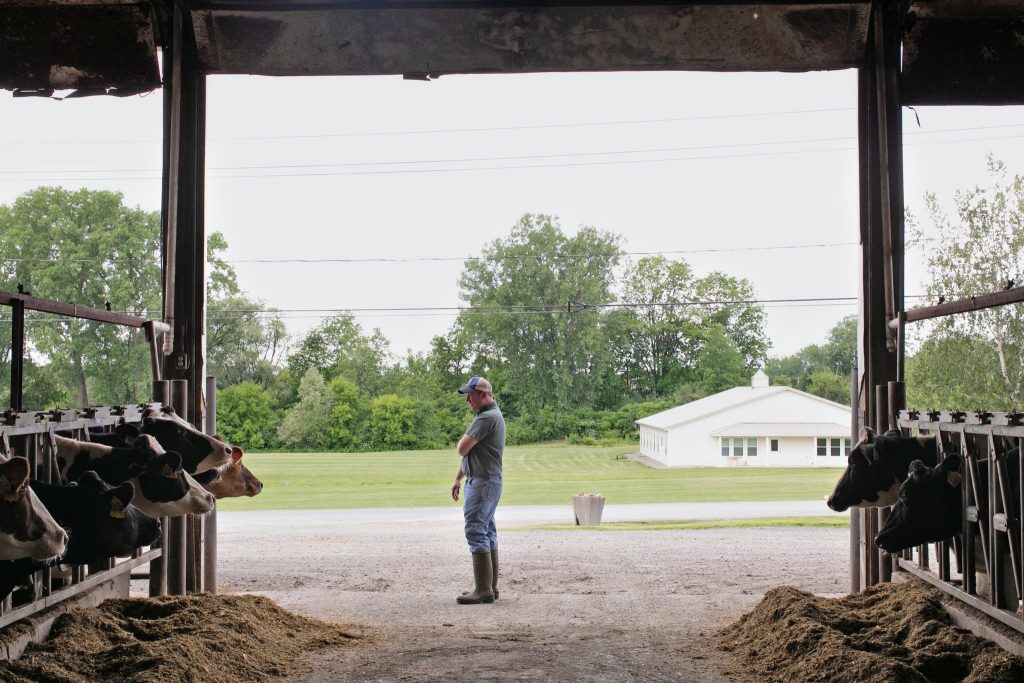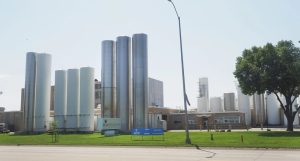
The yogurt maker Chobani is working with Fair Trade USA, a nonprofit group in Oakland, Calif., on creating a label that would signal that the milk in its products came from farms that treated their workers and cows humanely.
Chobani will pay a small premium for milk supplied by farms that agree to the Fair Trade USA vetting process, in which auditors periodically inspect the herd, interview workers and look at environmental issues like the containment of runoff.
Chobani’s fair-trade initiative — and likely marketing push — could help the company continue to stand out in an increasingly competitive yogurt market. Chobani says it believes the premium can help farmers hit by persistently low milk prices and highlight good practices in an industry that’s under enormous strain and scrutiny. Environmentalists are concerned about carbon emissions from cows, critics question the health benefits of milk, and many small farmers are deep in debt and suffering from mental health issues as their livelihood is threatened.
“When did the farm become this guilty place?” Hamdi Ulukaya, Chobani’s founder and chief executive, asked in an interview about the effort. “It was a magical place. This is the backbone of this country.”
The relevance of Mr. Ulukaya’s comments was later underscored in June by an undercover video of workers brutally abusing calves on a large farm that supplies milk for the Fairlife specialty brand. The video, which was filmed by an animal welfare group and quickly went viral, showed one calf being stomped in the head and others dying from heat.
Fairlife and Coca-Cola, which distributes the high-protein milk and is an investor in the brand, have said they are increasing inspections and animal welfare training at suppliers.
“People have high expectations of Coca-Cola’s conduct and products, and we recognize that we must play a stronger role in improving animal welfare across the dairy industry,” Jim Dinkins, president of Coca-Cola’s North America operations, told employees last month.
Mr. Ulukaya said the fair-trade initiative, which was developed many months before the Fairlife scandal, was meant to create “comprehensive” standards for ensuring sound labor, environmental and animal welfare conditions on dairy farms.
Chobani said the standards would be in addition to the animal welfare requirements that its suppliers already had to meet.
One potential complication: Many dairy farmworkers in the United States are immigrants from Central America, and a large number are believed to be undocumented. Mr. Ulukaya said he did not think that would make farmers in central New York and Idaho, the two states where the yogurt company draws its milk, reluctant to open up to the fair-trade auditors.
A Chobani spokeswoman said the company had not yet decided how much extra it would be willing to pay for fair-trade milk but that it could range from 2 to 4 percent above the market price. Mr. Ulukaya said Chobani was not planning to pass the added cost on to consumers.
Founded in 2005 in a Kraft factory in upstate New York that was closing, Chobani brought new demand for milk to the area’s dairy industry. Other yogurt makers piled in, flooding the market with seemingly endless amounts of yogurt varieties.
But after years of rapid growth, driven in large part by Chobani’s popularization of Greek yogurt, the market has been cooling off.
Chobani’s yogurt sales have continued to grow, even as overall demand for Greek yogurt sales has declined.
The fair-trade label could burnish Chobani’s brand among its large base of health and socially conscious consumers on the East and West Coasts. A few years ago, the company made a splash for hiring a large number of refugees, raising calls from right-wing critics to boycott the brand.
Outside the coasts, yogurt companies have struggled to break through in new markets.
“A third of Americans say they haven’t bought yogurt in the past three months,” said Caleb Bryant, an analyst at Mintel, a consumer product research firm. “I don’t see what is going to bring them into the market.”
Fair Trade USA, which was started in 1998 to help coffee farmers around the world, has recently started working with a variety of farms in the United States, including tomato growers. The group’s labels cover 40 categories and generated about $105 million in premiums for producers last year, said Paul Rice, the group’s founder. Fair Trade USA annually earns about $15 million in fees that brands pay for the certification process and the right the use the label.
Jeremy Brown a dairy farmer in the Finger Lakes region of New York, said he supported any effort to help consumers appreciate the effort that went into running a farm like his, which has about 2,900 cows.
Many people, he said, are suspicious of large dairy farms even though many of them, when operated correctly, can create comfortable conditions for the cows and the workers.
Mr. Brown, who supplies milk to Chobani through a cooperative, said that he would welcome any premium but that for many farmers who faced serious financial issues, it wasn’t likely to be enough to turn around their business.
“Every bit helps,” he said. “People are in a tough spot.”

























